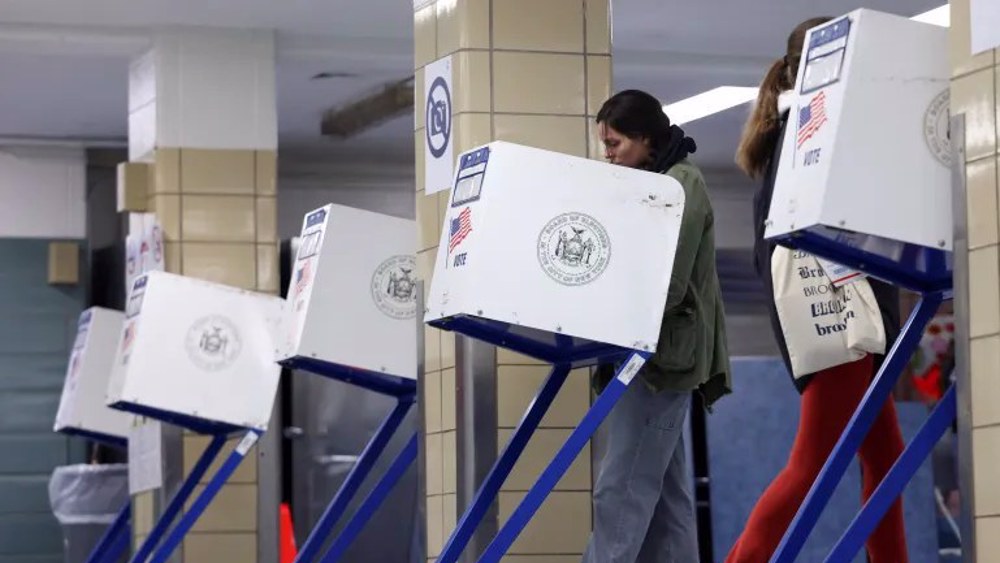Senate narrowly votes to move ahead on healthcare, votes down repeal
The US Senate has voted narrowly to begin debate on legislation to repeal Obamacare, but Republican leaders faced their first defeat when they failed to get enough votes on a measure to repeal President Barack Obama’s healthcare law.
The US Senate voted 51-50 on Tuesday to proceed with a debate on Republican plans to dismantle Obamacare, with Vice President Mike Pence casting the tie-breaking vote.
All 48 Democratic and left-leaning senators opposed the measure, along with Republicans Susan Collins and Lisa Murkowski. Senator John McCain, recently diagnosed with brain cancer, entered the chamber to a standing ovation and cast a crucial Republican vote in favor of proceeding.
The Republican senator said he would not vote for the healthcare bill "as it is today," and added, "I know many of you will have to see the bill changed substantially to support it."

President Trump, who hailed the huge political win, had earlier warned his party's senators that they would face strong repercussions if they failed to move forward on the legislation.
"To every member of the Senate I say this: The American people have waited long enough. There's been enough talk, and no action. Now is the time for action," Trump said at the White House. "So far, Senate Republicans have not done their job in ending the Obamacare nightmare."
But later in the evening, the Senate took its first substantive vote on a version of the Better Care Reconciliation Act, that would partially repeal and replace Obamacare.
Republican leaders needed to reach 60 votes to pass the measure. Instead, it fell 43-57.
Before Tuesday's vote, Senate Majority Leader Mitch McConnell also called on senators to take the first step to “provide relief on this failed left-wing experiment.”
“I’d like to reiterate what the president said yesterday,” he said. “Any senator who votes against starting debate is telling America that you are fine with the Obamacare nightmare … That’s a position that even Democrats have found hard to defend.”

The vote sets up days of debate and votes on repealing and replacing Obamacare, which was designed to increase health insurance quality and affordability, lower the uninsured rate by expanding insurance coverage and reduce the costs of healthcare. Whatever the Senate approves will still require a vote in the House of Representatives.
In the most contentious congressional vote of Trump's presidency in May, lawmakers voted 217 to 213 to pass the Obamacare repeal-and-replace bill.
No Democrats backed Trump’s American Health Care Act (AHCA), also known as Trumpcare, and some 20 Republicans voted in opposition. Most of the Republican politicians have long vowed to repeal Obamacare.
Healthcare experts from across the political spectrum have said that Trump’s bill is unworkable, suffers from fatal flaws and could lead to Americans dropping out of the healthcare market.
Experts agree that the bill fails to reach the objectives laid forth by Trump, which includes affordable coverage for everyone, lower deductibles, healthcare costs and better care.
Israeli strike on Lebanon kills at least 15 people
Israeli forces kill 7 more Palestinians in West Bank
VIDEO | US presidential election
Netanyahu fires military affairs minister Gallant
Hezbollah attacks turn Israel’s Haifa into a ghost town
Iran’s FM meets Pakistani PM, discusses bilateral ties, Israeli atrocities
Iran ramps up gasoline output amid rising demand
UK foreign secretary under pressure over denial of genocide in Gaza










 This makes it easy to access the Press TV website
This makes it easy to access the Press TV website